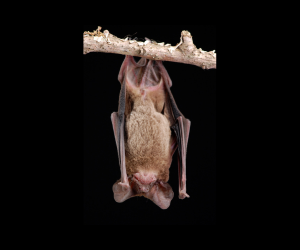The impacts of biodiversity decline on agriculture and human health
Scientists have long established a critical link between biodiversity decline and human well-being. A recent study published in Science shows the link between agrichemical use, bat-die off, and public health. Bats provide important ecosystem services such as pest control for farmers while also protecting human health by reducing the spread of disease through mosquito consumption. This study further contributes to our understanding of the complex relationship between ecosystem health and human welfare.
The experiment was prompted by the emergence of white-nose syndrome, an invasive fungal disease that affects insect-eating bats. The disease provides a unique opportunity to study how a decline in bat populations, which are essential for biological pest control, impacts agricultural practices and public health. Since 2006, white-nose syndrome has caused significant declines in bat populations across the United States, forcing farmers to rely more heavily on synthetic insecticides. This situation allows for an analysis of changes in farm operations and human health before and after these declines in bat numbers. 
The findings from this study indicate that following the onset of bat die-offs, farmers increased insecticide use by an average of 31.1%. Moreover, the research documented a 7.9% increase in infant mortality rates in counties affected by the bat die-offs, suggesting that the increased reliance on insecticides can have detrimental health impacts, even when pesticide usage remains within regulatory limits.
The staggered spread of white-nose syndrome supports a causal interpretation of these results, as alternative explanations would need to align with the timing of the disease's spread. Additional analyses found no significant changes in crop composition, other mortality types, or economic conditions that could account for the observed health impacts, reinforcing the link between declining bat populations and public health concerns.
These findings underscore the importance of reducing the use of harmful insecticides to protect ecosystems. Beyond demonstrating the agricultural benefits of bats, the results highlight broader implications for human health and well-being. Given the various threats bats face—including habitat loss and climate change—this research emphasizes the need for effective conservation strategies and demonstrates the benefits of adopting organic practices, which minimize reliance on harmful chemicals and promote biodiversity. Organic agricultural practices not only support healthier ecosystems, but also foster long-term sustainability by protecting pollinators, natural pest control agents like bats, and overall ecosystem balance.


